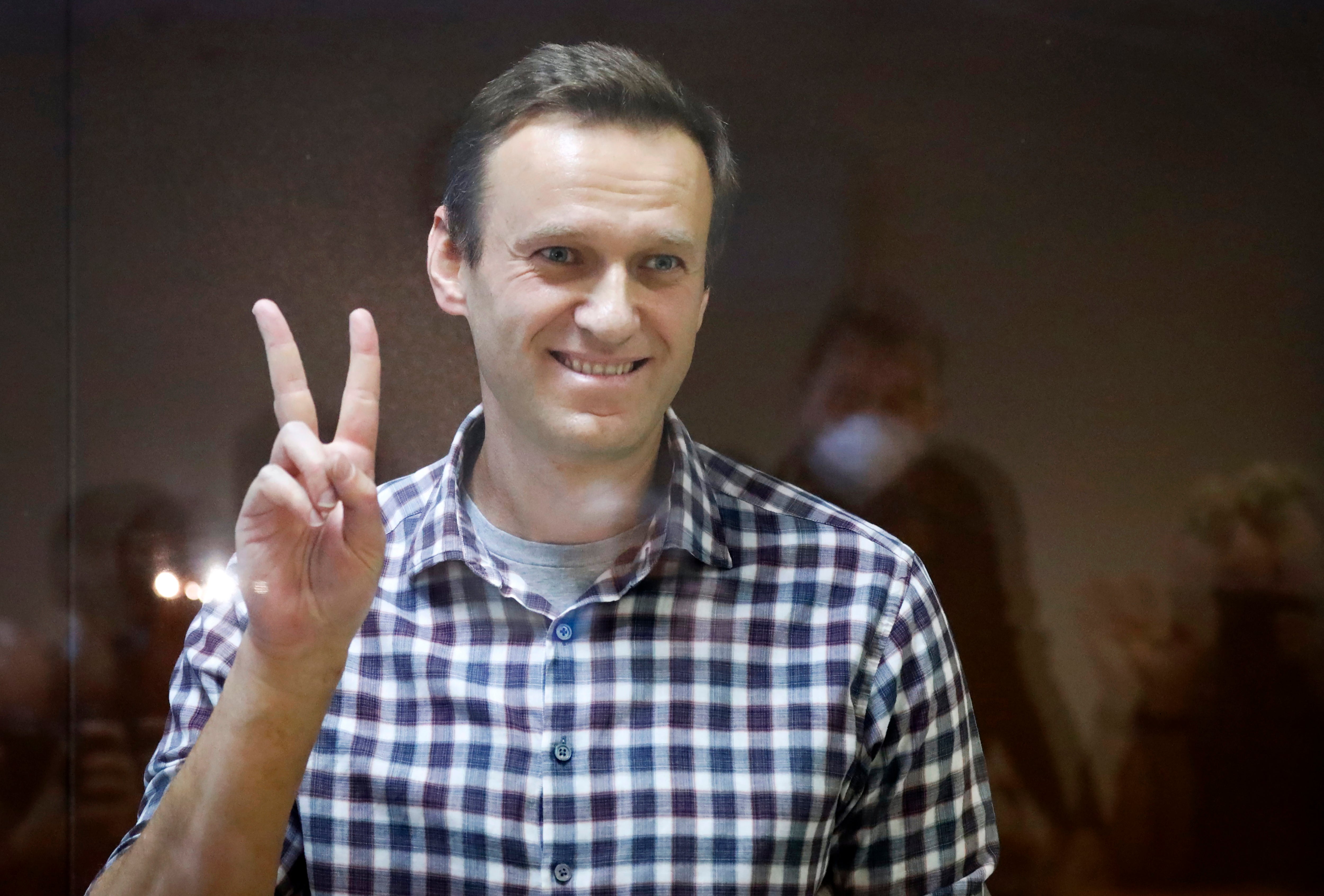Navalny marks year after poisoning with anti-corruption call
Imprisoned Russian opposition leader Alexei Navalny has marked the anniversary of a poisoning attack against him by urging global leaders to focus on combating corruption and to target tycoons close to Russian President Vladimir Putin

Your support helps us to tell the story
From reproductive rights to climate change to Big Tech, The Independent is on the ground when the story is developing. Whether it's investigating the financials of Elon Musk's pro-Trump PAC or producing our latest documentary, 'The A Word', which shines a light on the American women fighting for reproductive rights, we know how important it is to parse out the facts from the messaging.
At such a critical moment in US history, we need reporters on the ground. Your donation allows us to keep sending journalists to speak to both sides of the story.
The Independent is trusted by Americans across the entire political spectrum. And unlike many other quality news outlets, we choose not to lock Americans out of our reporting and analysis with paywalls. We believe quality journalism should be available to everyone, paid for by those who can afford it.
Your support makes all the difference.Imprisoned Russian opposition leader Alexei Navalny marked the anniversary of a poisoning attack against him by urging global leaders Friday to put more attention on combating corruption and to target tycoons close to Russian President Vladimir Putin
In an article published in three European newspapers, Navalny chided Western leaders for relegating the fight against corruption to a “secondary agenda” item and said that graft plays an essential part in policy failures, including in Iraq and Afghanistan.
“It is precisely the fact that the West ‘failed to notice’ the total corruption in Afghanistan – that Western leaders preferred not to talk about a topic they found embarrassing – which was the most crucial factor in the victory of the Taliban,” Navalny wrote.
Navalny was arrested in January upon returning to Moscow from Germany where he spent five months recovering from a nerve agent poisoning that he blames on the Kremlin. Russian officials reject the accusation.
The politician and anti-corruption activist, who is Putin’s most determined political foe, received a 2 1/2-year prison sentence in February for violating the terms of a suspended sentence from a 2014 embezzlement conviction that he dismissed as politically motivated.
British newspaper The Guardian, Germany’s Frankfurter Allgemeine Zeitung and France’s Le Monde published Friday's article by Navalny. In it, he called corruption “the universal, ideology-free basis for the flourishing of a new Authoritarian International, from Russia to Eritrea, Myanmar to Venezuela.”
He challenged international leaders to show a stronger political will to track financial trails from Russia and other countries beset by corruption and to more resolutely target corrupt officials.
“Until personal sanctions are imposed on oligarchs, primarily those in the entourage of Putin – the role model for all the world’s corrupt officials and businessmen – any anti-corruption rhetoric from the West will be perceived as game-playing and hot air,” Navalny said.
In a separate Instagram post Friday, Navalny again thanked Russian pilots and ambulance doctors for saving his life after he fell into a coma while aboard a domestic flight from Siberia to Moscow on Aug. 20, 2020. He was transferred from a hospital in Siberia to a Berlin hospital two days later.
Labs in Germany, France and Sweden, and tests by the Organization for the Prohibition of Chemical Weapons, established that he was exposed to a Soviet-era Novichok nerve agent.
Reflecting on his poisoning and recovery, Navalny also had warm words for his supporters.
“Thanks to you all it all went fine, I survived and landed in prison,” he said on Instagram.
He added sardonically that he also should thank Russia’s corruption for helping disable Russia’s secret services along with other sectors.
“The level of secret operations is on par with health care, education and municipal services,” Navalny quipped.
Russian authorities have insisted that the doctors who treated Navalny in Siberia before he was airlifted to Germany found no traces of poison and challenged German officials to provide proof of his poisoning. They refused to open a full-fledged criminal inquiry, citing the lack of evidence that Navalny was poisoned.
In a statement issued earlier this week, the Russian Foreign Ministry denounced Western accusations over Navalny's poisoning as a “planned provocation” aimed at discrediting Russia.